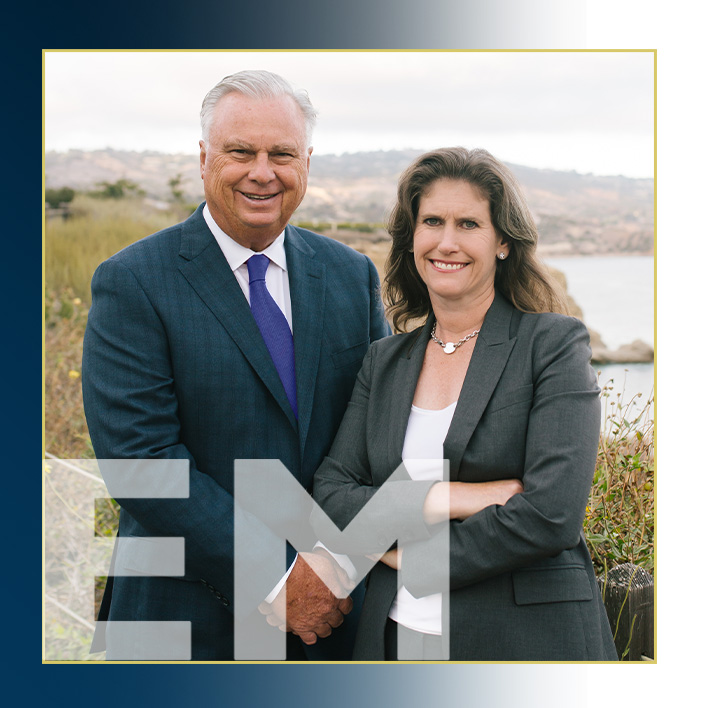
What are some of the common reductions in California DUI cases?
As your Los Angeles DUI lawyer, we often will be able to reduce your charge from a DUI to a lesser offense.
Alcohol-related reckless driving (“wet reckless”)
The most common reduction from a first-offense DUI case is a reduction to a violation of Vehicle Code section 23103.5, commonly known as alcohol-related reckless driving. Alcohol-related reckless driving, or what is often referred to as a “wet reckless,” generally involves a significantly reduced fine and a reduced alcohol program. Instead of requiring the lengthy 36-hour AB-541 first offender alcohol education program, conviction under an alcohol-related reckless driving charge requires only a 12-hour alcohol education program. In addition, there is usually no license restriction required by the court.
An alcohol-related reckless driving conviction does, however, carry “priorability.” This means that if a defendant is convicted of another DUI charge within ten years of the alcohol-related reckless driving conviction, then the alcohol-related reckless driving would count as a “prior conviction” as regards the new case. (Vehicle Code Section 23540)
DUI Cases We Handle

More Common Reductions
Nonalcohol-related reckless driving (“dry reckless”)
A second (or “level two”) reduction of a DUI charge is known as non-alcohol-related reckless driving, pursuant to Vehicle Code section 23103. In this circumstance, a defendant generally receives a significantly reduced fine and no alcohol education program. In addition, no license restriction is imposed. More importantly, this is a “non-priorable” offense; that is, if the client has another DUI arrest in the future, then a nonalcohol-related reckless driving conviction cannot be considered a “prior” in any future sentence for another DUI case.
Exhibition of speed
A third (or “level three”) reduction of a DUI charge is a violation of Vehicle Code section 23109(c), commonly known as exhibition of speed. Reduction to an exhibition of speed charge generally involves a fine, with no other obligations to the court. Like a nonalcohol-related reckless driving charge, this is a “non-priorable” offense.
Others
Another reduction in DUI cases is to a “two movers” violation, which are infractions, including speeding and lane change violations.
As infractions, these are not criminal offenses and will not appear on your criminal record. This level of reduction would involve only a fine, with no probation. This is also a “non-priorable” offense.
In negotiating your case with a prosecutor, Robert Ernenwein and Michelle Mathes, will either attempt to have the matter dismissed or, alternatively, try to reduce the charges as low as possible. If we cannot obtain a satisfactory result at the pretrial negotiating stage, we are always ready to take your DUI case all the way to jury trial and fight for a full acquittal in the case against you.

-
I cannot thank Robert enough for his efforts, knowledge, and execution in my case. He gave me a second chance.- Kevin Q.
-
Michelle has had a profound impact on my life. She not only has a firm grasp of legal matters, but also of human emotions. This dynamic duo worked all hours of the day and night on my case. They exerted effort way beyond the amount that I had paid them.- Khadijeh K.
-
If you are in need of a great attorney with an abundance of experience as well as a very professional office staff who constantly will keep you updated, call Ernenwein & Mathes!- Jake L.
-
They are the gold standard for defense attorneys. A+- Former Client
How can an experienced attorney defend my DUI case?
Contrary to public opinion, there are countless different approaches to defending a DUI case.
Attacking Allegations of Impaired Driving
Some common explanations for impaired driving include poor road conditions, extreme fatigue, inclement weather, or mechanical problems with your vehicle. In addition, minor violations such as lane weaving, failure to stop for a stop sign, or entry into a crosswalk, are common occurrences and are not necessarily symptomatic of intoxication.
Attacking Allegations of “Objective Symptoms” of Intoxication
In preparing their reports after DUI arrests, police officers will frequently make reference to a person’s clumsy behavior, such as wavering, stumbling, or general confusion. They will also often refer to a person’s slurred speech or reddened, flushed face. All of these so-called “objective symptoms” of intoxication are also common reactions to extremely high-stress situations, such as confronting a police officer. Other symptoms frequently referred to by police officers, such as bloodshot or watery eyes, can be explained by fatigue, by long periods of driving time, or by allergies or airborne pollutants.
The “objective symptom” most frequently referred to by arresting officers, of course, is the powerful odor or smell of alcohol. It is important to remember, however, that alcohol is an odorless substance. When an officer refers to an “alcoholic odor,” he is actually smelling the flavoring of the alcohol, not the alcohol itself. Of all alcoholic beverages, beer usually leaves the strongest odor on a person’s breath, yet it is one of the least intoxicating of alcoholic beverages.
Attacking Field Sobriety Tests
In addition, we can attempt to minimize the evidence relating to your field sobriety test. The analysis of any field sobriety test performance is largely subjective. That is, performance of the field sobriety tests is subject to different interpretations. Remember, police officers are not licensed doctors and are not capable of making a medical analysis.
If you have performed poorly on a field sobriety test, independent medical or physical problems could be the cause. Common examples include eye problems, joint or arthritis problems, preexisting medical injuries, or age and infirmity. Attorney Ernenwein and Michelle Mathes will carefully evaluate the scene where the field sobriety tests were performed. A sloped roadway or sidewalk area or poor lighting conditions can contribute to poor performance on field sobriety tests.
Attacking Breath Test Results
There are also a number of ways in which an experienced DUI attorney can attack chemical test results. Remember, the BAC DataMaster and the Intoximeter EC/IR, the primary evidentiary breath-analyzing devices used in the greater Los Angeles area, are just machines. As machines, breath alcohol testing devices have flaws, and their results should always be suspect. Your car can break down, your computer hard drive can crash, and breath alcohol testing equipment can be faulty.
At Ernenwein & Mathes, LLP, we will never simply assume that blood alcohol chemical test results are accurate. We will thoroughly interview you regarding your medical history and lifestyle to determine whether any foreign substance or pre-existing medical condition may have affected your breath alcohol test results.
In a breath test, all accuracy records, maintenance logs, and usage logs for the machine in question should be carefully evaluated by an experienced professional, to determine whether or not the breath test equipment was in compliance with Title 17 of the Administrative Code. The breath testing device checklist and all materials referenced by the checklist, including the certification and qualifications of the operator must be carefully scrutinized. As experienced Los Angeles DUI attorneys, we will obtain and examine all of these records while preparing a defense for your case.
Attacking Blood Test Results
In cases where a blood test was used to determine your blood alcohol concentration, our lawyers will obtain a court order releasing the actual blood sample used in your case, and that sample will be independently evaluated for preservative level and blood alcohol concentration. Often, independent testing will reveal an insufficient preservative level or a lower blood-alcohol level than was determined by the police laboratory.
In addition, our DUI law firm will examine the “chain of custody” of the blood sample. The “chain of custody” essentially consists of how the blood sample was retrieved by medical personnel and then transported to the laboratory. If there is a “break” in the chain of custody, this may affect the admissibility of the blood test evidence in court. Also, as your attorneys, we will determine who drew your blood sample. Under certain provisions of the California Vehicle Code, only certain qualified personnel can draw a blood sample. If an unqualified person drew your blood, then the results of that blood sample may not be admitted as evidence.
Firm Expertise
At Ernenwein & Mathes, LLP, we regularly employ the expert services of forensic alcohol consultants for assistance in evaluating field sobriety tests and blood and breath testing. In this regard, the firm frequently uses the services of forensic alcohol consultant Dewayne Beckner, a celebrated expert in the field of forensic toxicology with over 30 years of experience in the field. The assistance of an expert forensic alcohol consultant at trial can greatly increase a defendant’s chances for an acquittal.
I refused to take a blood-alcohol test, how will this affect my case?
Refusing a chemical test is a violation of California’s implied consent law of the Department of Motor Vehicles and can have serious ramifications regarding driving privileges. If you refused a chemical test pursuant to a DUI arrest, the DMV will automatically attempt to suspend your driving privilege for a period of one year.
The court may attempt to add additional penalties to any conviction in a “refusal” case, including mandatory jail time. In addition, the prosecution can ask that the refusal of a chemical test be considered by the jury as a “consciousness of guilt.” In other words, they would argue, at trial, that the defendant felt that if he or she had submitted to a chemical test, it would be above a .08%. If you refused to take a breath or blood test, you need an experienced and aggressive DUI attorney to assist you in your case.
Acting as your Los Angeles DUI lawyer, we will utilize our substantial experience in dealing with DUI “refusal” cases. In evaluating a “refusal” case, it is important to remember that one of the primary variables that prosecutors, defense lawyers, courts, and juries consider in DUI cases is totally unavailable. That is, there is no chemical evidence or evidence of actual blood alcohol concentration at the time of driving. This can actually be helpful in raising a reasonable doubt in the case. Attorney Ernenwein can often exploit a “refusal” case. There are some possible affirmative defenses to a refusal, including a failure by police officers to follow proper procedures (such as a failure to administer a complete admonishment, detailing the consequences of a refusal).

-
Our Areas of PracticeOur firm is dedicated to criminal defense. See how we can help!
-
Dedicated to Your DefenseGet to know our defense law firm and see how we can help!
-
Request a ConsultationReach out today to speak with a member of our team.